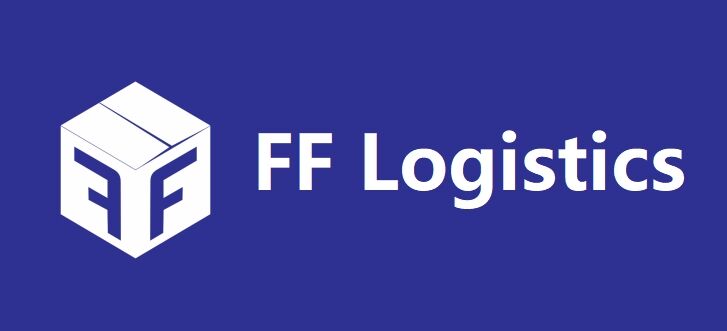Finding a suitable supplier in China can feel overwhelming, but a systematic approach makes it manageable. You need to research thoroughly, verify every detail, and communicate clearly. Skipping these steps increases risks like poor product quality or unreliable delivery. By focusing on due diligence, you protect your business and build strong partnerships. Trust comes from knowing your supplier meets your standards and shares your goals. Take the time to evaluate carefully, and you'll find a suitable supplier who aligns with your needs.
Identifying the Right Supplier
Using Online Platforms to Find Suitable Suppliers
Exploring Alibaba, Global Sources, and Made-in-China
Online platforms like Alibaba, Global Sources, and Made-in-China make it easier to find suitable suppliers in China. These platforms connect you with thousands of manufacturers and trading companies. Each platform offers detailed supplier profiles, product catalogs, and customer reviews. Alibaba, for example, is one of the largest B2B marketplaces, offering a wide range of products and verified suppliers. Global Sources focuses on high-quality suppliers and often caters to businesses looking for innovative products. Made-in-China provides a user-friendly interface and detailed supplier certifications.
When using these platforms, always check supplier verification badges. Verified suppliers usually undergo a thorough review process, which reduces risks. Look for suppliers with high ratings and positive reviews. This step helps you avoid unreliable partners and ensures you work with trustworthy businesses.
Tips for filtering and shortlisting suppliers effectively
Finding the right supplier requires more than just browsing profiles. Start by using filters to narrow down your search. Filter by product category, minimum order quantity (MOQ), and location. This saves time and ensures you only see suppliers that match your needs. Pay attention to response times. Suppliers who reply quickly often show professionalism and reliability.
Shortlist suppliers by comparing their offerings. Look at Pricing, production capacity, and certifications. Request samples to evaluate product quality firsthand. Samples give you a clear idea of whether the supplier can meet your standards. Keep your list manageable by focusing on three to five top candidates. This approach simplifies the decision-making process.
Attending Trade Shows for Supplier Discovery
Key events like the Canton Fair and their benefits
Trade shows are excellent opportunities to find suitable suppliers. Events like the Canton Fair, held twice a year in Guangzhou, showcase thousands of suppliers from various industries. You can explore products, compare options, and meet suppliers face-to-face. This direct interaction helps you assess their professionalism and communication skills.
Trade shows also allow you to see product quality up close. Unlike online platforms, you can touch and inspect items in real time. Many suppliers bring their latest innovations to these events, giving you access to unique products. Attending trade shows saves time by letting you evaluate multiple suppliers in one location.
Advantages of face-to-face interactions with suppliers
Meeting suppliers in person builds trust. Face-to-face interactions let you discuss your requirements clearly and address any concerns immediately. You can gauge a supplier’s attitude, expertise, and willingness to meet your needs. Personal connections often lead to stronger business relationships.
In-person meetings also help you negotiate better terms. Suppliers are more likely to offer discounts or flexible conditions when they meet you directly. This approach gives you an edge over competitors who rely solely on online communication.
Leveraging Sourcing Agents for Assistance
When and why to hire a sourcing agent
Sourcing agents can simplify the process of finding a suitable supplier. They act as your local representative, handling tasks like supplier research, price negotiation, and quality control. Hiring a sourcing agent makes sense if you’re unfamiliar with Chinese business practices or don’t have time to manage the process yourself.
Agents are especially helpful for small businesses. They can find suppliers who meet your specific needs and budget. Their local knowledge ensures you avoid common pitfalls, such as language barriers or cultural misunderstandings. A good sourcing agent saves you time and reduces risks.
How to identify a reputable sourcing agent
Choosing the right sourcing agent is crucial. Start by checking their experience and track record. Look for agents with positive reviews and a history of successful projects. Ask for references from previous clients to verify their credibility. A reputable agent will have strong connections with reliable suppliers.
Transparency is another key factor. A trustworthy agent will provide clear pricing and keep you informed throughout the process. Avoid agents who demand upfront payments without offering guarantees. Take your time to evaluate options and choose an agent who aligns with your goals.
Verifying Supplier Credibility
Conducting Thorough Background Checks
Reviewing business licenses, certifications, and online presence
Before committing to a supplier, you need to confirm their legitimacy. Start by reviewing their business licenses and certifications. These documents prove that the supplier operates legally and meets industry standards. Ask for copies of their licenses and verify them with the issuing authorities. Certifications, such as ISO or CE, indicate that the supplier follows quality and safety guidelines.
Check their online presence as well. A professional website with detailed information About their products and services is a good sign. Look for active profiles on platforms like Alibaba or Made-in-China. Suppliers with a strong online presence often take their reputation seriously. This step helps you avoid scams and ensures you work with a reliable partner.
Gathering references and checking reviews
References and reviews provide valuable insights into a supplier’s reliability. Ask the supplier for references from previous clients. Reach out to these clients and ask about their experiences. Were the products delivered on time? Did the quality meet expectations? Honest feedback can help you make an informed decision.
Online reviews are another useful resource. Check platforms where the supplier is listed and read customer feedback. Pay attention to recurring complaints, as they may indicate consistent issues. Positive reviews and satisfied clients suggest that the supplier is trustworthy and capable of meeting your needs.
Performing Factory Visits and Audits
Benefits of visiting the supplier's facility in person
Visiting the supplier’s factory gives you a firsthand look at their operations. You can assess their production capacity, equipment, and working conditions. This visit helps you confirm that the supplier can handle your order volume and meet your quality standards. Observing their processes also reveals how seriously they take quality control.
A factory visit builds trust between you and the supplier. It shows that you’re invested in the partnership and willing to put in the effort. Suppliers often appreciate this gesture and may prioritize your business as a result. Seeing their facility in person eliminates doubts and strengthens your confidence in their capabilities.
Using third-party audit services for verification
If visiting the factory isn’t possible, consider hiring a third-party audit service. These professionals conduct thorough inspections on your behalf. They check the supplier’s facilities, equipment, and compliance with regulations. Audit reports provide detailed insights into the supplier’s operations and highlight any potential risks.
Third-party audits save you time and ensure unbiased evaluations. Reputable audit companies in China specialize in verifying suppliers and protecting buyers. This option is especially useful if you’re sourcing from multiple suppliers or managing a tight schedule. Relying on experts reduces the chances of unpleasant surprises later.
Evaluating Communication and Responsiveness
Importance of clear and timely communication
Effective communication is key to a successful partnership. A reliable supplier responds promptly to your inquiries and provides clear answers. Delays or vague responses can signal disorganization or lack of interest. You need a supplier who values your time and understands your requirements.
Clear communication ensures that both parties are on the same page. Misunderstandings can lead to production errors or missed deadlines. Discuss your expectations early and confirm that the supplier can meet them. Regular updates during the production process keep you informed and reduce stress.
Identifying red flags during initial interactions
Pay attention to how the supplier communicates during your first interactions. Do they avoid answering specific questions? Are they reluctant to share certifications or references? These behaviors can indicate potential problems. A trustworthy supplier will be transparent and eager to address your concerns.
Watch for inconsistencies in their responses. If their claims don’t match the information on their website or profiles, proceed with caution. Trust your instincts. If something feels off, it’s better to explore other options. Identifying red flags early saves you from bigger issues down the road.
Ensuring Quality and Compliance
Implementing Effective Quality Control Measures
Conducting pre-production, in-production, and final inspections
Quality control starts before production even begins. Pre-production inspections help you confirm that the supplier understands your requirements. During this stage, you can review raw materials, prototypes, or samples to ensure they meet your standards. This step prevents costly mistakes later.
In-production inspections are equally important. These checks allow you to monitor the manufacturing process. You can catch issues early, such as defects or deviations from your specifications. Regular monitoring keeps the production on track and ensures consistency.
Final inspections happen when the products are ready for shipment. At this stage, you verify that the finished goods match your expectations. Inspect the packaging, labeling, and overall quality. This last step ensures you receive products that meet your standards before they leave the factory.
Ensuring product quality before shipment
Before Shipping, take extra steps to confirm product quality. Request detailed photos or videos of the finished goods. These visuals give you a clear idea of what to expect. If possible, ask for a small batch to be shipped first. This allows you to test the products in real-world conditions.
You can also use a checklist to evaluate quality. Include criteria like dimensions, materials, and functionality. Share this checklist with the supplier to ensure they understand your expectations. Clear communication reduces misunderstandings and helps you avoid receiving substandard products.
Using Third-Party Quality Control Services
Benefits of professional QC companies
Third-party quality control (QC) companies offer valuable expertise. These professionals specialize in inspecting products and factories. They provide unbiased evaluations, which help you make informed decisions. By hiring a QC company, you save time and reduce stress.
Professional QC services also ensure thorough inspections. They check every detail, from raw materials to final packaging. Their reports highlight potential issues, so you can address them quickly. This level of scrutiny protects your investment and ensures you receive high-quality products.
Examples of reliable QC service providers in China
China has many reputable QC companies. Some well-known options include:
SGS: A global leader in inspection and testing services. They offer comprehensive solutions for quality control and compliance.
Bureau Veritas: Known for their expertise in product testing and certification. They help businesses meet international standards.
AsiaInspection (now QIMA): Specializes in quality control for consumer goods. They provide fast and reliable inspection services.
These companies have strong track records and experienced teams. Choosing a reliable QC provider ensures your products meet your expectations.
Ensuring Compliance with Regulations
Understanding import/export laws and certifications
Compliance with regulations is crucial when sourcing from China. Start by researching the import/export laws in your country. These rules determine what products you can import and the required certifications. For example, electronics often need CE or FCC certifications to meet safety standards.
Ask your supplier about the certifications they hold. Verify these documents with the issuing authorities. If you're unsure about the requirements, consult a customs broker or legal expert. Staying informed helps you avoid fines, delays, or confiscated shipments.
Avoiding counterfeit or substandard products
Counterfeit products can harm your business and reputation. To avoid them, work only with verified suppliers. Check their licenses, certifications, and online presence. Reliable suppliers are transparent about their operations and willing to share documentation.
Inspect samples carefully before placing large orders. Look for signs of poor craftsmanship or low-quality materials. If something feels off, trust your instincts and explore other options. Taking these precautions ensures you receive genuine, high-quality products that meet your standards.
Finding the right supplier in China takes effort, but it’s worth it. Research thoroughly to understand your options. Verify every detail to ensure you’re working with a reliable partner. Communicate clearly to avoid misunderstandings and build trust. These steps protect your business and set you up for success. Stay proactive and diligent throughout the process. When you approach sourcing with care, you’ll not only find suitable suppliers but also create lasting partnerships. With the right strategy, sourcing from China can become a rewarding experience for your business.



